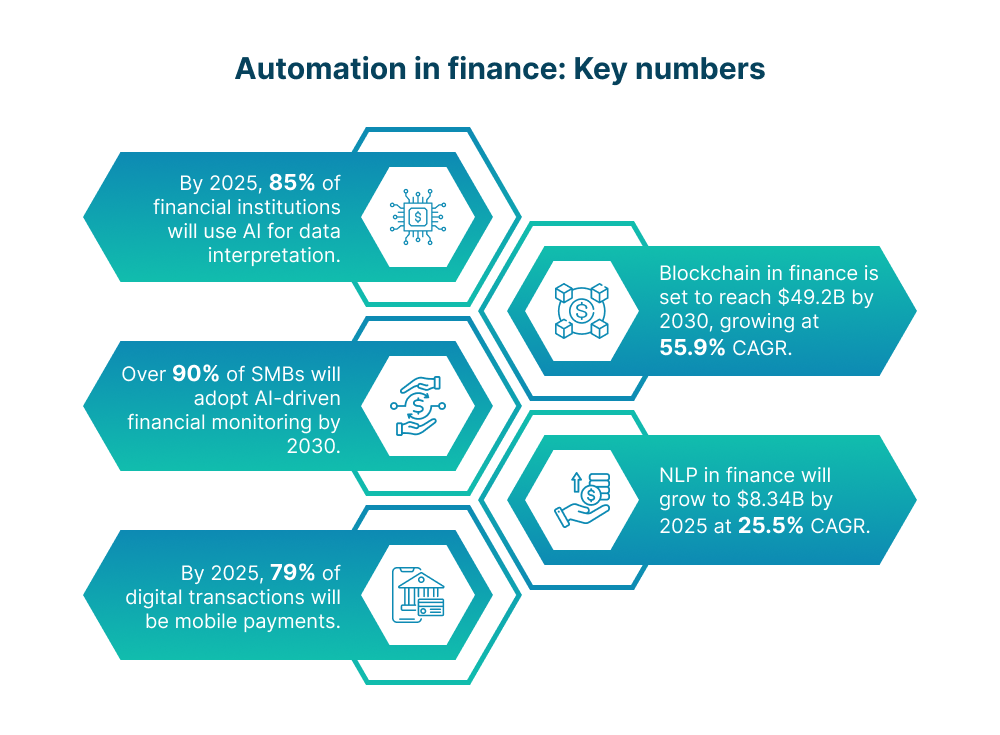Payment Reconciliation
Why leading finance teams are automating for audit accuracy, not just efficiency
How leading finance teams are shifting from efficiency to accuracy by automating audits for greater trust, transparency, and control.

Amrit Mohanty
Sep 2, 2025 (Last Updated: Sep 23, 2025)

The historical narrative around finance automation has always been simple: to get things done faster. It is also to reduce processing times, lessen manual labour, and demonstrably increase your workforce productivity. However, this does not solve the CFO's worry of 'speed without accuracy is just costly noise'.
Well, the finance teams have understood this: automation is not about speed but accuracy. In an environment where audit requirements are getting highly complex and regulatory oversight intensifies, moving from efficiency first to accuracy first is not only smart, it is the only method to survive.
The hidden cost of manual errors
Imagine, you have already completed the month -end close in record time. But then the auditors arrive and suddenly “efficient” looks like missing documents, incomplete records, and reconciliation gaps causing a halt in the process.
The reality is that manual and human- driven processes have too much margin for error. In fact, the Institute of Management Accountants recently found that only 28% of finance professionals fully trust their financial data. When it comes to audit readiness, the outcome often becomes chaotic, and teams find themselves scrambling and reacting, trying to put together trails that should be straight and tight from the beginning.

Beyond speed: The audit-first automation revolution
Leading finance teams are rethinking automation, not just to move faster, but to stay audit-ready from the start. This shift is paying off: AI-driven audit tools have cut error rates from 5.0% in 2020 to 3.0% in 2024, while boosting fraud detection. The real breakthrough comes when automation is built with accuracy as the goal, not an afterthought.
Platforms such as Optimus Fintech take this approach by validating every transaction in real time, cross-checking data against multiple sources, and maintaining a complete audit trail; turning compliance from a burden into a built-in advantage.
The operational excellence connection
Here’s the shift: when finance teams automate for audit accuracy, the operational excellence naturally follows. The discipline of always staying audit-ready, validating every journal entry, reconciling with system-verified documentation, and logging every step, creates more than compliance. It really builds a culture of precision.
In fact, audits aren’t fire drills, they’re business as usual. And the numbers back it up: 68% of businesses are turning to AI-driven automation to improve efficiency, accuracy, and fraud detection. The real winners? Those who put accuracy at the core because when your data is always trustworthy, better decisions and stronger performance are simply inevitable.
The intelligent validation advantage
Traditional automation often just digitizes manual tasks. Yes it might be faster, but not smarter. Intelligent validation changes the game, platforms such as Optimus don’t just process transactions; but verify them and check vendor authenticity, matching purchase orders, validating budgets, and flagging anomalies in real time.
Here every step is logged, creating a built-in audit trail. The impact is profound: finance teams reclaim the half of time once lost to error-fixing and shift it toward strategy and decision support. More importantly, the platform approaches audits with confidence, not stress, knowing their data has already been continuously validated. This isn’t efficiency alone; it’s true audit intelligence.
The technology talent gap reality
Here's a truth that many finance leaders are grappling with: the skills required for modern financial operations are evolving faster than most teams can adapt. 1.69 million accounting jobs are now open, and the talent that's available often lacks the technical sophistication required for audit-grade automation implementation.
This reality makes the platform choice even more critical. Solutions that require extensive technical configuration and ongoing maintenance can quickly become liabilities rather than assets. The most successful implementations feature platforms that embed intelligence directly into the user experience. These systems make complex validation logic accessible to finance professionals without requiring data science degrees.
Real-time audit readiness: The new standard
The audit process is changing fast. Year-end crunches are giving way to continuous monitoring and real-time validation. In 2025, AI, talent shortages, and real-time auditing are reshaping expectations; auditors now want data that’s always ready.
Companies using intelligent automation platforms are already ahead: transactions come with built-in validation, reconciliations happen automatically, and exceptions generate instant audit trails. Instead of “getting audit-ready,” you’re already there.
This shift turns audits from stressful checkpoints into collaborative conversations. With data integrity assured, finance teams can move beyond defending the books and focus on what really matters; performance, risk, and strategy.
The ROI of accuracy
While efficiency gains are easy to measure, such as time saved and processes accelerated, accuracy improvements create compounding returns that are far more significant. Consider the cost of a material weakness in internal controls, the expense of audit delays, or the reputational impact of financial restatements. These risks dwarf the operational costs that traditional efficiency automation addresses.
AI-driven audit automation now enables analysis of complete financial transactions, compared to the sampling approaches that leave gaps in coverage. This comprehensive validation creates a foundation of confidence that extends far beyond audit compliance to strategic decision-making and stakeholder trust.
Looking forward: The competitive advantage of precision
The finance teams that will thrive aren’t just the fastest, they’re the most accurate. With rising regulatory complexity and growing demands for transparency, audit-grade automation is becoming a true competitive edge.
For leaders, the question isn’t if to automate, but how platforms such as Optimus prove what’s possible when accuracy, intelligent validation, and readiness drive the strategy. The future belongs to teams that balance speed with precision, where audit readiness isn’t a year-end scramble but a continuous state of excellence. In today’s world, working perfectly is not just faster, it is the only automation strategy that matters.

